By Macky Macavinta
MAASIM, Sarangani (August 9, 2009) - Amidst the summer sun, the air is cool from the strong sea breeze blowing thru an open veranda of Noel M. Tapan’s residence. The atmosphere is calm despite the fact that this area was the target of an armed raid just a month ago, he tells me an hour later after he calmly sits across me in large wooden sofa.
The soft-spoken, 59-year old barangay captain of Kabatiol, Maasim takes on a relaxed demeanor as we talked about the events of his life and the circumstances that led him here. He speaks with a barely audible voice, and a stance of calmness that doesn’t give justice to his past.
Born in Kabatiol on September 1, 1959 from Cebu-migrated parents, Noel spent his uneventful childhood days in the area. His father Porferio and mother Estrella, being fishermen, were able to send him to Notre Dame of Maasim where he studied until high school.
“I was the usual trouble making teenager when I was in school,” he recounts. “Saw my fair share of trouble and got into a lot of fights until I decided to drop out on my fourth year.”
But the events of the time were a bit harsh on the community, and in 1984, during the height of the late strongman Ferdinand Marcos’ martial rule, he decided to join the Communist Party of the Philippines as a member of the notorious “sparrow unit.”
“It was the failure of government during the Marcos regime and the military cruelties, brought about by Marial Law, that were rampant made the idea of communism seem seductive,” he justifies. “I believe it was the primary reasons why the movement proliferated.”
Between 1984 and 1989, he was deployed in one of their hit squad’s targets dubbed “White Area” in Malapatan, Glan and throughout the entire coastal area of Sarangani, as well as Bula in General Santos where he has, literally, put a few people below the ground, including a drug pusher from North Cotabato.
After taking a bullet in the leg and the rear because of a disagreement with a fellow rebel in 1989, he took a short break from fighting and moved down from the mountains.
During this time, infighting was already rampant within the movement and different units would engage in firefights because of small disagreements.
“There was distrust between members and they ended up killing each other. Units would accuse individuals from other groups as military assets to justify their actions over petty grievances,” he recalls.
It was also during this time where the CPP/NPA command lost control of their members. Certain units would resort to banditry and coercion when the community refused to aid in their cause.
And in 1992, he finally surrendered to the 453rd Philippine Constabulary under Col. De Jesus in General Santos City and sought refuge in the community of Kabatiol where the people in the area protected him from active members of the movement who would later seek retribution.
For the next 13 years, Noel earned a living as a fisherman under then start-up industrialist Roger Lim and would be earning close to P50,000 a month, which was considered huge at the time, with fishing alone. And in 2003, Noel decided to venture off alone and separated from Lim amicably. He sold off his assets for his starting capital and continued fishing within the area of Kabatiol.
He has long since sold off majority of his fishing boats and retained two boats in exchange for a simpler life and lives with his wife, Laarni, whom he met in Malapatan during his rebel days, and four children whom he has, with his simple lifestyle, sent off to the nearby Notre Dame for education.
In 2007, he reluctantly replaced incumbent Añana Aguello, his former teacher in elementary, as barangay captain at the urging of the local members of the community and is the current head of the Rebel Returnees Association in the area.
As a local leader, Noel’s responsibility now extends to the preservation and the promotion of peace in the area, and has chosen rebel returnees as his personal staff as barangay captain to give them an additional source of income.
He believes that a functioning government is essential for the achievement of peace in the country, that the proliferation of education will give the youth a better future and prevent them from being drawn in to the propaganda of the CPP/NPA thus eliminating the threat to lasting peace.
When asked about his view on the current state of the national government, Tapan states: “If only our national government would directly address the problems of the people, instead of arguing amongst themselves, we would not hesitate to approach them instead of relying on those who claim to be fighting for the people thru means of rebellion, due to the difficulties of poverty.” (Macky Macavinta/SARANGANI INFORMATION OFFICE)
Subscribe to:
Post Comments (Atom)




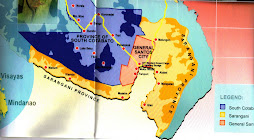





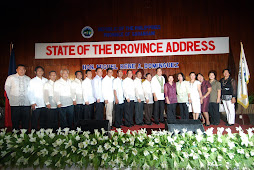
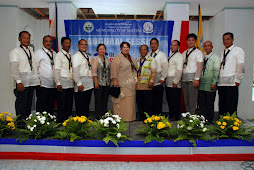










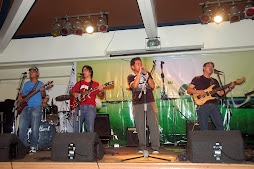





























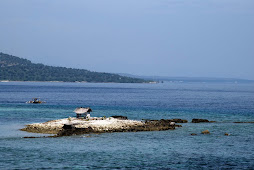
No comments:
Post a Comment